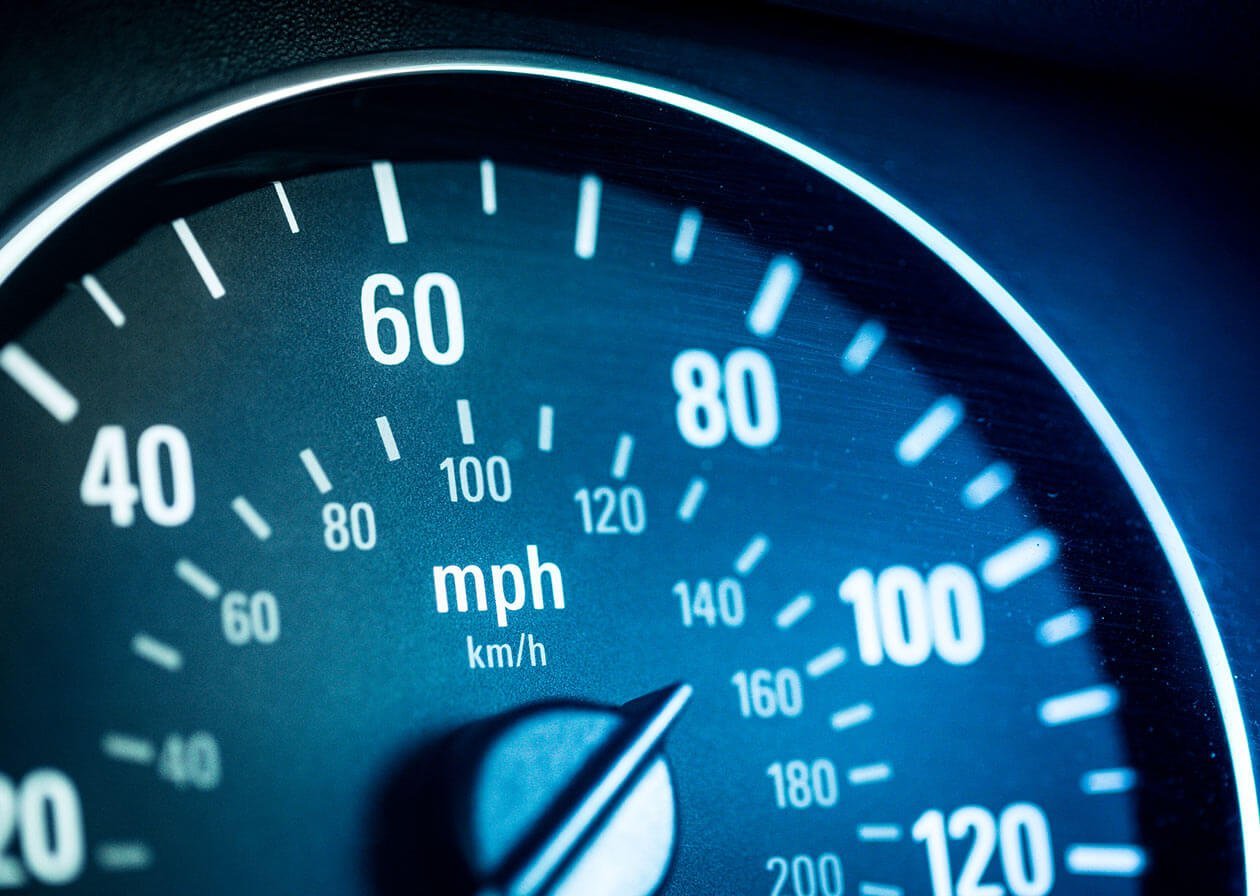Among the personal freedoms Americans are unwilling to give up is the right to speed. Even though autonomous vehicle technology now has the ability to read road signs or use GPS to recognize speed limits, most Americans aren’t ready for their cars to limit how fast they can drive.
Recently, the European Union provisionally agreed to require all cars made from 2022 come equipped with speed limiters. A similar approach in the U.S. could help combat aggressive driving and reduce speed-related fatalities, but could such a mandate be enacted in a country renowned for its freedoms, where the roars of wide open engines have long been celebrated?
We surveyed 1,000 people to find out if they’d be willing to install a speed limiter on their cars. This is what we learned:
— 68 percent were not willing to install a speed limiter
— Only 14 percent believed speed limiters should be required by law
— Female drivers and drivers over the age of 65 were more willing to install speed limiters
Americans in a hurry: Most US drivers unwilling to give up the right to speed

Table of contents:
Embrace the freedom of the open road with comprehensive car insurance. Compare quotes today.
68 percent of Americans would not limit their car’s top speed
The majority of survey respondents said they were not willing to install speed limiters. Just 32 percent were willing to install speed limiters, and only 14 percent believed they should be required by law. Programming cars to limit their top speeds could prevent crashes but could also lengthen commutes, especially for those who speed in order to get to their destination faster.

The dangers of speeding
According to the NHTSA, speeding accounts for more than a quarter of traffic fatalities in America. Driving over the speed limit comes with a greater potential for loss of vehicle control and increases crash severity, leading to more serious injuries and fatalities. To combat speeding, authorities work to enforce speed limits by issuing speeding tickets and, in extreme cases, revoking licenses, but budget and manpower constraints limit the effectiveness of this approach.

Women and drivers over 65 are more willing to install speed limiters
Female respondents were more willing to install speed limiters, with 38 percent saying they would install the safety devices on their cars. Only 26 percent of males reported that they’d be willing to use a speed limiter. Of the females surveyed, 16 percent believed speed limiters should be required by law, while only 10 percent of male respondents agreed the devices should be required.


Although most Americans may not be willing to install speed limiters, lawmakers, car insurance providers, carmakers and drivers are still searching for ways to make our roads and vehicles safer. Autonomous technology has recently become an exciting solution to our road safety problem, with some experts predicting self-driving cars could do away with human error, therefore eliminating 94 percent of serious crashes.
While we’re not ready to populate the roads with fully autonomous vehicles, advanced safety technology, like automatic emergency braking and lane departure warning systems, and road infrastructure improvements are already saving lives. We’ll have to wait and see how the future of transportation takes shape and which freedoms drivers are willing to give up for safer roads.
Methodology
This study was conducted for The Zebra using Google Consumer Surveys. The sample consisted of no less than 1,000 completed responses per question. Post-stratification weighting has been applied to ensure an accurate and reliable representation of the total population. This survey was conducted in September 2019.
Stay in touch and subscribe!
Get advice, insights and tips from our newsletter.
Related Content
- Everything You Need to Know About Car Sharing
- 13 considerations for living in your car
- What to do after a hit and run: 5 important steps you need to know
- [POLL] Nearly half of Americans have “parallelophobia”
- Driving behavior and road rage in 2024
- The parts of a motorcycle and their functions explained [Infographic]
- When Will Life-Saving Autonomous Features Be Available to All Drivers?
- [Infographic] How do smart highways work?
- Waze vs. Apple Maps vs. Google Maps – Which Map App is Best?
- No car, no problem: Green transportation options for short commutes

